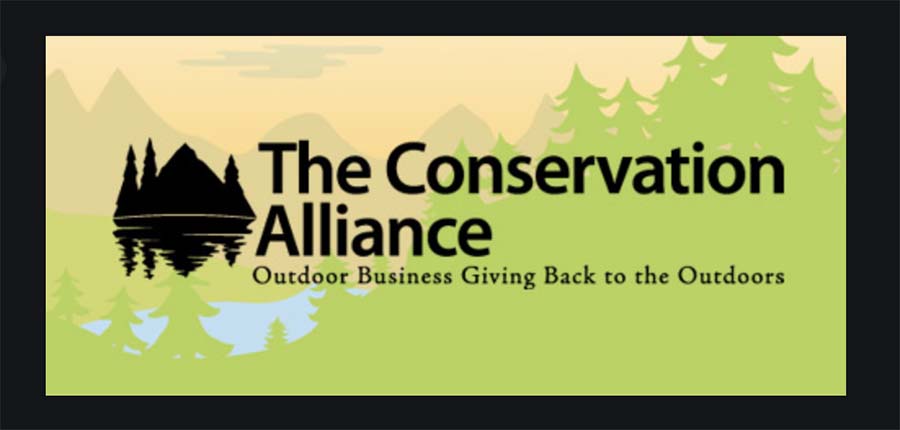The Conservation Alliance announced it has sent grants totaling $945,000 to 49 organizations working to protect and defend wild places in North America.
The grants came from the group’s regular grant fund ($785,000), a new Community Grant project ($125,000) and the Public Lands Defense Fund ($35,000). Despite the impacts of the coronavirus, the Alliance’s 250 member companies remain committed to supporting grassroots groups working to protect and defend wild places in the U.S. and Canada.
The vast majority of the recent grants, totaling $785,000, came through The Conservation Alliance’s Winter 2020 funding cycle. Conservation Alliance member companies contribute annual membership dues to a central grant fund. Each member company has the opportunity to participate in the grant-making process by voting for specific projects that seek to protect wild places for their habitat and recreation values.
The Conservation Alliance made donations to 22 grassroots conservation organizations as follows: Adirondack Council, Alaska Wilderness League, American Rivers, American Whitewater, Backcountry Hunters and Anglers, California Wilderness Coalition, Canadian Parks and Wilderness Society – British Columbia, Columbia Land Trust, Dolores River Boating Advocates, Downeast Lakes Land Trust, Habitat Acquisition Trust, Northeastern Minnesotan’s for Wilderness, Oregon Wild, Outdoor Alliance, The Wilderness Society, Trout Unlimited – Alaska, Ventura Land Trust, Virginia Wilderness Committee, Western Mass Climbers Coalition, Western Rivers Conservancy, Wildlife Conservation Society, and Wyoming Outdoor Council.
The Conservation Alliance launched a special Community Grant project designed to support small grassroots groups during the coronavirus pandemic. Unrestricted $5,000 grants were awarded to 25 organizations who have annual operating revenue less than $3 million and received more than $10,000 in funding from The Conservation Alliance during the time period January 1, 2019-March 20, 2020. The Conservation Alliance board has the authority to award discretionary grants not to exceed $10,000 per organization. The total amount of funding awarded through the Community Grant project is $125,000.
The following organizations are Community Grant recipients: Alachua Conservation Trust, American Whitewater, California Wilderness Coalition, Friends of Nevada Wilderness, Gwich’in Steering Committee, Klamath-Siskiyou Wildlands Center, Montana Wilderness Association, New Mexico Wilderness Alliance, Northeastern Minnesotans for Wilderness, Oregon Desert Land Trust, Oregon Natural Desert Association, Oregon Wild, Outdoor Alliance, San Juan Citizens Alliance, Save Our Canyons, Southeast Alaska Conservation Council, Taxpayers for Common Sense, The Wilderness Land Trust, Trustees for Alaska, Wallowa Land Trust, Washington Wild, West Virginia Land Trust, Western Environmental Law Center, Wilderness Workshop, and Yaak Valley Forest Council.
The Conservation Alliance also made two grants totaling $35,000 from its Public Lands Defense Fund (PLDF). A $20,000 PLDF grant was awarded to The Wilderness Society for their efforts to defend the Roadless Rule in Alaska and Utah, and a $15,000 grant was awarded to Western Environmental Law Center for their work to defend the Cascade-Siskiyou National Monument. The PLDF is a special grant fund, launched after the 2016 elections, that supports efforts to defend the integrity of the U.S. public lands system.
“Moving cash from our grant fund into the hands of small conservation groups is critically important right now,” said Brady Robinson, executive director of The Conservation Alliance. “We are grateful to be in a position to have an impact by helping the groups working to protect wild places get through this uncertain time.”
“A Community Grant from The Conservation Alliance helped American Whitewater extend complimentary basic memberships to those members up for renewal who have lost their jobs or are suffering financial hardship,” said Mark Singleton, Executive Director at American Whitewater. “It’s important to keep our community together and engaged with conservation efforts despite economic downturns—bad actors that threaten public lands and waters aren’t quitting their efforts during this time, and therefore, neither can the conservation community.”
Logo courtesy Conservation Alliance
















